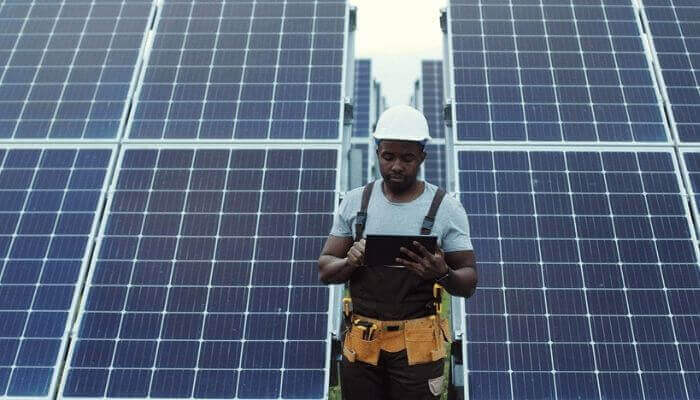Beautiful Plants For Your Interior

Nigeria is at a pivotal moment in its energy transition journey. With an unreliable power grid, skyrocketing electricity bills, and a growing population, solar energy has emerged as a sustainable and profitable solution for individuals and businesses. Here are five reasons why solar energy is Nigeria’s most promising investment in 2025.
1. Energy Crisis and Rising Electricity Costs
Nigeria’s energy challenges are no secret. The national grid frequently experiences outages, leaving millions in the dark. To mitigate these challenges, businesses and households spend billions annually on fuel-powered generators, a short-term and expensive solution. Solar energy, on the other hand, offers a cost-effective alternative by harnessing the sun’s power, which is abundant in Nigeria. Over time, switching to solar can significantly reduce energy costs, making it a smart financial decision.
2. Cost Savings for Households and Businesses
One of the most attractive aspects of solar energy is the long-term savings it offers. While the initial investment in solar panels and batteries might seem high, the cost savings over time outweigh the upfront expense. Businesses that switch to solar can cut down on overhead costs, while households enjoy reduced electricity bills. By investing in solar energy, Nigerians can redirect these savings to other essential areas of their lives or operations.
3. Growing Government Support for Renewable Energy
The Nigerian government is actively promoting renewable energy through incentives and policies. Initiatives like the Rural Electrification Agency (REA) and tax breaks for renewable energy equipment are designed to encourage individuals and businesses to adopt solar energy. This support makes it easier and more affordable for Nigerians to invest in solar power, further boosting the sector’s profitability.
4. Environmental Impact and Global Trends
The global shift toward sustainability has never been stronger. Countries worldwide are embracing renewable energy to combat climate change, and Nigeria is no exception. Solar energy reduces carbon emissions and promotes environmental sustainability, aligning with international goals for a greener future. For investors, this makes solar energy a socially responsible choice that also positions them as contributors to global sustainability efforts.
5. Return on Investment (ROI) and Low Maintenance Costs
Solar panels are built to last, with lifespans of 25 years or more. Once installed, they require minimal maintenance, making them a hassle-free investment. Additionally, the savings on energy bills mean that investors can recoup their initial costs in a few years. With proper planning, solar energy investments can generate consistent returns for decades, offering unparalleled financial benefits.
Conclusion
Solar energy is more than just a solution to Nigeria’s energy crisis; it’s a profitable investment opportunity. From cutting costs to contributing to environmental sustainability, the benefits are immense. For individuals and businesses looking to make smart financial decisions in 2025, solar energy is the way forward. Embrace the power of the sun and secure your financial future today.
